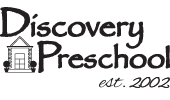Program Statement
The Discovery Preschools are private Centre’s that offer families exceptional educational child care, without discrimination, for children ages 2 months and up to 5 years.
The Discovery Preschools support a challenging environment that intrigues a child’s natural intuitive curiosity. It is a unique childcare experience that families will be proud to be a part of. We acknowledge the incredible work of the children, parents and teachers in Reggio Emilia, Italy. Their approach to childcare has inspired many educators from around the world to visit these schools and welcome many aspects of this approach into our North American culture and communities. Our schools also reflect the new Pedagogy in Ontario for the Early Years.
How Does Learning Happen? Is the Ministry of Education’s formal document which organizes experiences and curriculum into four foundational conditions that are important for children to
grow and flourish: Belonging, Well-Being, Engagement, and Expression. These foundations are governed by the Child Care and Early Years Act, and therefore, part of our yearly licensing review. Our Program Statement is our guiding research and interpretation that we have embraced a seamless philosophy supporting our years of personal research of world-renown educational ideas and provincial pedagogy.
The Discovery Preschools are beautiful, esthetically designed spaces. Each interior is accessible to all people and promotes the self-help skills of young children. Each space is filled with natural light promoting the opportunity of transparency to our surrounding community.
What you will notice:
- The school uses safe but challenging materials for investigation
- The building has a security door access code for family access
- Cloak areas close to or in the classroom
- Low sinks, bathrooms connected to the classroom.
Our schools proudly serve a hot nutritional lunch each day as well as a morning and afternoon snack. All meals are prepared at Beckenridge Discovery Preschool or Mother’s Deli to maintain high quality and delicious selections. The cultural diversity of the community is reflected in the meals as well as vegetarian and allergy safe selections within our resources. Our Nut Safe Policy restricts food being brought to the school. Please see the office when bringing food to the school for means of a birthday celebration or holiday.
What you will notice:
- Our menus include recommended daily servings from the Canada’s Food Guide
- Water is available throughout the day
- Our menu is based on a 3-week rotation to serve what children like to eat in very healthy ways
- Children set the tables with teachers, have open snack times and are encouraged to serve themselves and their friends
- Snacks include at least 2 food groups and our lunches always have 4 food groups each day.
Our Inspiration for Outstanding Curriculum
Our school reflects a strong image of the child and we encourage them to be constructors of their own meaningful experience within the school. They are expert thinkers and intuitive problem solvers. We are challenged by their curiosity and engage them to be co-participants in the daily life of the school. These values contribute to the formation of creativity, intelligence and awareness in children.
You will notice:
- Our teachers are ready to participate in constructive strategies, to scaffold learning and pose new questions to sustain the energy of an idea
- That children are respected for being resourceful and competent with great potential
- That teachers offer materials that we feel will build incredible experiences and support independence, self- regulation and competency.
An emergent curriculum engages children and teachers in observations, to hypothesize and predict, to develop a dialogue of thought provoking questions, to document events, and to celebrate the joys of learning. The child’s voice and ideas are to be encouraged as it is the basis of the curriculum. Careful choices are made to select projects for research and study. Children enjoy a curriculum that is meaningful to immediate experiences.
Your child will experience:
- Joy filled curriculum that connects cognitive processes with imagination
- Our teacher’s co-construct the children’s concepts to provide an organizational framework for exploring methodically
- Incredible modeling for education holistically as we research ideas that have endless connections, ie. literacy, math, science, building, etc.
The process of the groups work is of extreme importance and much of the learning comes from making connections and retracing steps than from the final product itself. The process of documentation makes the learning visible. It is an invaluable contribution by the children and teachers that depicts the emotional and intellectual value of the curriculum. It has the potential to involve the viewer into this dialogue to create a community of learners: the child, teacher and parent. The work documented not only enhances teaching, but it also transforms it into a valuable history that frames the school.
How does this happen?
- Our Observation Sheets illustrate how the teacher has connected the children’s ideas to the curriculum: everyone can revisit the construction and reconstruction of the event, ideas and theories
- Informal journals and panels show the children’s competence and connection to immediate and abstract ideas
- The work of the child is celebrated with a group and individually create a community of learners: the child, teacher and parent.
The curriculum depends on the continuity of time and the flexibility to avoid unnecessary transitions that may interrupt work and discovery. Washroom breaks will be guided by the children’s natural flow of time and as needed. Indoor and outdoor curriculum learning will be based on the flow of the day.
You will notice:
- Certain appointments in the day that must be kept are snack, Meeting time, lunch, and rest
- We may keep working with a group of children and switch outdoor schedule with another class
- We respect that individual learning takes time, practice and support
The environment plays a very important part of a person’s day and sends non-verbal messages of how to react in that space. Our environment creates the concept of a third teacher. The importance of our work, respect for all people, self-accomplishment and pride, the promotion of teamwork are planned for in the workspaces designed. Many materials will be made available to the children to encourage new skills and refinement of skills previously acquired.
Our environment supports:
- Children find joy in using space that is organized and respected
- Useful work tools to sustain the cognitive processes for constructing and research
- Materials that offer independence and negotiation for children and teachers
- A balance for an ongoing challenge of experience and provocation.
Mutual respect and admiration builds strong relationships and fosters co-participation between peers, teachers and parents. The dynamics of negotiation and cognitive coordination enrich children’s ideas and concepts of the world around them. This relationship context is what children and families desire in order for connections of the school experience to be stronger and continuous.
We connect with children to:
- Work in small groups. Working together in this way encourages familiarity and support based on interactions and discussion.
- Support a child’s ability to self-regulate and interact with others in positive ways.
- Have a meeting to revisit the work accomplished in the day and plan for next steps.
Your family has the right to be involved in your experience at the school. You have the opportunity of involvement in many creative ways. We respect that you are experts on your children. We value that you bring diverse social, cultural, and linguistic perspectives to our school. Please feel free to bring in recycled materials, offer to help out in the garden, or to provide a service to the school by means of your profession and hobbies. The more resources that the school can draw from, the richer the children’s experience can be.
Your family will enjoy:
- Our family meetings as they encourage parents to come and be a part of a project projection and activity enhancement
- Collecting materials as a way to bridge home and school relationships
- A phone call when your child has information to be shared
- Communication that is valued and shared each week via Shutterfly with our families. This is an incredible resource in the life of our school.
The Educators are competent and capable, curious, and rich in experience. They are knowledgeable, caring, reflective, and resourceful professionals. They bring diverse social, cultural, and linguistic perspectives. They collaborate with others to create engaging environments and experiences to foster children’s learning and development. Educators are lifelong learners. and their understanding of the individual children and families they work with.
We believe in a lifetime of learning by:
- Integrating knowledge from theory and constant research
- Taking time and responsibility for our own learning and make decisions about ways to research combined with experience
- Seeking guidance from Early Intervention, and other professional resource partners when a child is in need of further support
- Supporting local partners in the community that broaden our perspective and accept resources outside of the school walls.
Discovery Preschools embrace a strong sense of respect for the people who use the school and the community that supports us. We believe that it is an integral part of being a good citizen. Making connections between adults and children is the most important connection that we can make with children. This interconnectivity focuses on our emotional and cognitive development providing a successful adult/child social connection. Both the adult and child need to continuously develop skills that support successful relationships, solving problems, and the adaptation to different social settings. We focus all our actions on self-awareness, self-regulation, being cooperative, and above all to be caring.
What you’ll notice:
- Our teachers are constantly responding to “clues” that the children present to us to communicate how they are feeling
- We interpret why a child may be feeling and responding accordingly.
- We strive to be face-to-face with them when coaching
- Calm caring voices that are warm and responsive
- We model thoughtfulness and genuine encouragement
- We involve the child in resolving the situation, both positive and corrective instances
- We encourage them to listen in return
- Physical contact as a supportive and loving language; we hold children appropriately eg; by the hand or trunk of the body.
Discovery Preschools have instilled these principals since 2002. We have been leaders in our community in the support of many educators, and we have studied with and about all the leading experts that these principals are based from. We keep documentation and reviews about how the Program Statement and its respective strategies affect our learning environment.
What you’ll notice:
- Throughout the years, Discovery Preschool has adapted reflective evaluations to support our directives. This will aid us in the delivery of the new regulations for the Program Statement Implementation policy
- All staff will be required to review and sign the Program Statement; committing themselves to curriculum strategies
- We will document and review the impact of the strategies in the Program Statement as an ongoing commitment for the children and their families. All changes and comments will be kept in our Program Statement Binder and will show a history of all the reflections made. This will be reviewed on an ongoing basis and a yearly statement will be discussed by the Director and Curriculum Consultant and documented accordingly.
Reggio Emilia Approach
No way. The hundred is there.
The child is made of one hundred.
The child has
a hundred languages
a hundred hands
a hundred thoughts
a hundred ways of thinking
of playing, of speaking
a hundred always a hundred
ways of listening
of marveling of loving
a hundred joys
for singing and understanding
a hundred worlds
to discover
a hundred worlds
to invent
a hundred worlds
to dream.
The child has
a hundred languages
(and a hundred hundred hundred more)
But they steal ninety- nine.
The school and the culture
separate the head from the body.They tell the child: to think without hands
to do without head
to listen and not to speak
to understand without joy
to love and to marvel
only at Easter and Christmas.
They tell the child:
to discover the world already there
and of the hundred
they steal ninety- nine.
They tell the child:
that work and play
reality and fantasy
science and imagination
sky and earth
reason and dream
are things
that do not belong together
And thus they tell the child
that the hundred is not there.
The child says:
No way. The hundred is there.
~Loris Malaguzzi
Q: What is “the Reggio approach?”
The Reggio Emilia philosophy and approach to early childhood education has developed and continues to evolve as a result of over 40 years of experience within a system of municipal infant-toddler centers and preschools in Reggio Emilia, Italy. Parents, who started the schools in the 1940s, continue to participate to ensure the schools reflect the values of the community. From the beginning, the late Loris Malaguzzi, leader, philosopher and innovator in education, who was then a young teacher, guided and directed the energies of those parents and several teachers. Through many years of work with them, he developed an education based on relationship, which has become widely known and valued. The Reggio Emilia approach is built upon a solid foundation of connected philosophical principles and extensive experience. Educators in Reggio Emilia have been inspired by many early childhood psychologists and philosophers, such as Dewey, Piaget, Vygotsky, Gardner and Bruner. Please understand that we are not referring to an early childhood method or set curriculum, but rather a deep knowledge in theory and community-constructed values that have been and are continuously being translated into high quality early childhood practices. As a result, educational theory and practice in Reggio Emilia is strongly connected. To learn more about fundamental principles of the Reggio approach, read Lella Gandini’s article, “Fundamentals of the Reggio Emilia Approach to Early Childhood Education,” published in the November 1993 issue of Young Children or Lella’s chapter in Next Steps Toward Teaching the Reggio Way: Accepting the Challenge to Change, edited by Joanne Hendrick.
The Reggio educators’ intention in sharing their experience with educators around the world is to encourage others to understand their own values regarding childhood, education and community. Reggio educators hope to promote dialogue among educators, so that they will come to understand their own identity as a school community. Through this process, educators can then ensure that the learning and relationships of children, teachers and parents within their school community reflect their shared values.
Q: How can I learn more about the Reggio approach?
There are numerous professional development initiatives in North America and in Reggio Emilia for those who are interested in learning more about the experience of educators in Reggio and those in North America inspired by this philosophy. See the home page of the NAREA website for information on “The Hundred Languages of Children” exhibit schedule, study tours to Reggio Emilia as well as NAREA professional development initiatives. For further information, click on the Professional Development section of the NAREA website. There you will find the Conferences and Initiatives page with information on conferences, seminars, workshops and learning tours in Reggio-inspired schools in North America and the General Bibliography page with a comprehensive listing of print and video resources. For a listing of resources published by Reggio Children, go to their website: www.reggiochildren.it
Those seeking to learn more might find NAREA’s annual summer conference to be of particular interest. Each year, the conference is located in a different community in North America, in order to encounter different regions and different contexts. The conference features the voices and experiences of classroom teachers, administrators, policy-makers, professors, authors and others. Opportunities for small group discussions and networking are maximized, in order for conference participants to build stronger connections with each other in the process of learning.
Q: What is the meaning of the phrase “the hundred languages of children?”
Educators in Reggio believe that children have the right and the ability to express their thinking, theories, ideas, learning and emotions in many ways. Therefore, Reggio educators provide children with a wide range of materials and media, and welcome a diversity of experiences, so that children encounter many avenues for thinking, revising, constructing, negotiating, developing and symbolically expressing their thoughts and feelings. In this way, teachers, parents and children can better understand each other. These languages can include drawing, paint, clay, wire, natural and recycled materials, light and shadow, dramatic play, music and dance. They can also include expression with words through metaphors, stories or poems of the children’s interpretations and reflections about their experiences or through special design, such as maps and three dimensional constructions. In fact, there is not a separation between what it is considered traditionally artistic expression and academic education in the schools of Reggio Emilia. All are considered part of the one hundred and more languages of learning. Teachers in Reggio often encourage children to represent their ideas on a particular topic in multiple languages, and find that the process of moving between languages supports children in their understanding and learning. To learn more about the role of languages in children’s learning and relationships, read Children, Art, Artists: The Expressive Languages of Children, The Artistic Language of Alburto Burri; The Hundred Languages of Children: The Reggio Emilia Approach-Advanced Reflections


